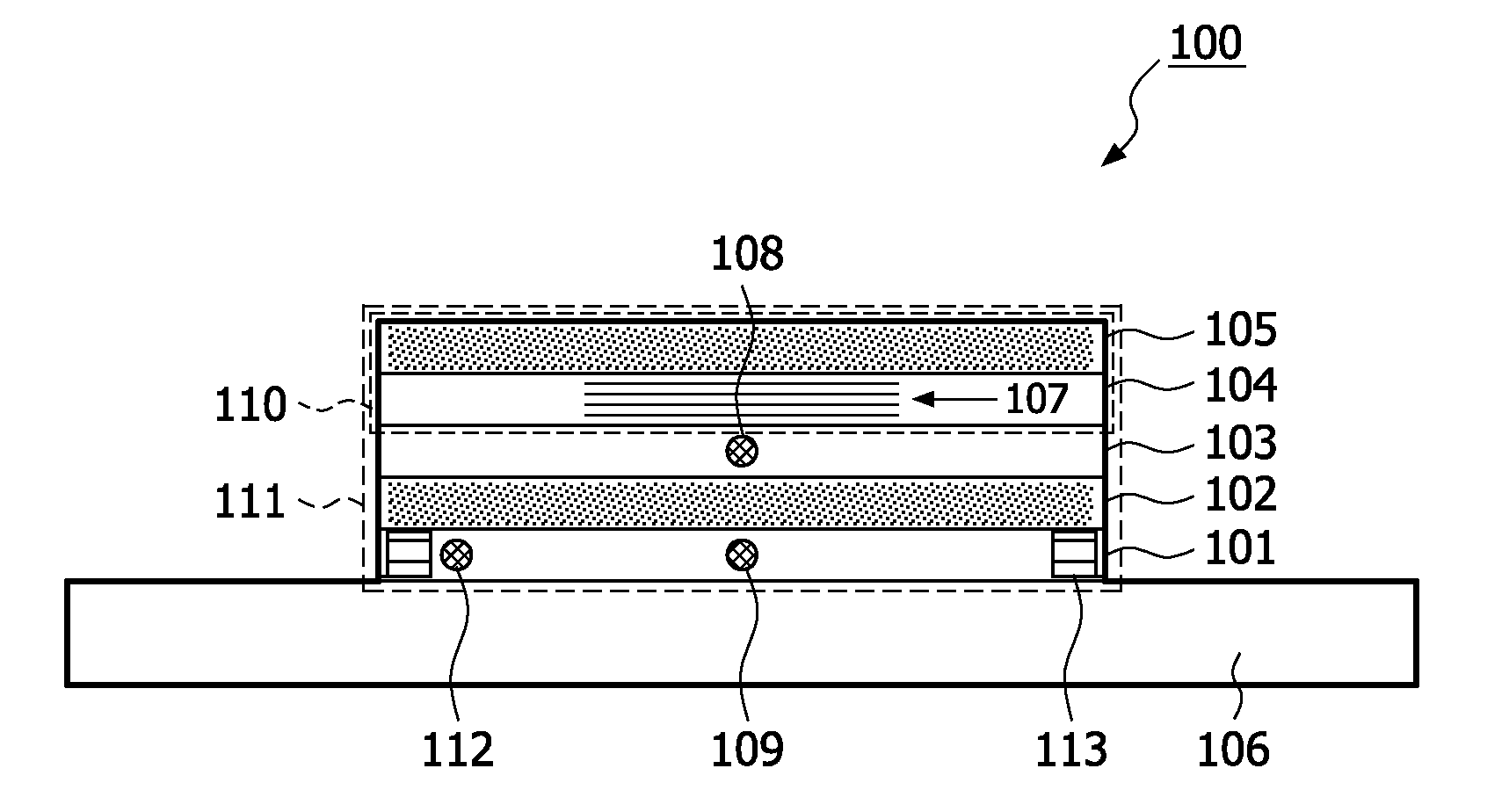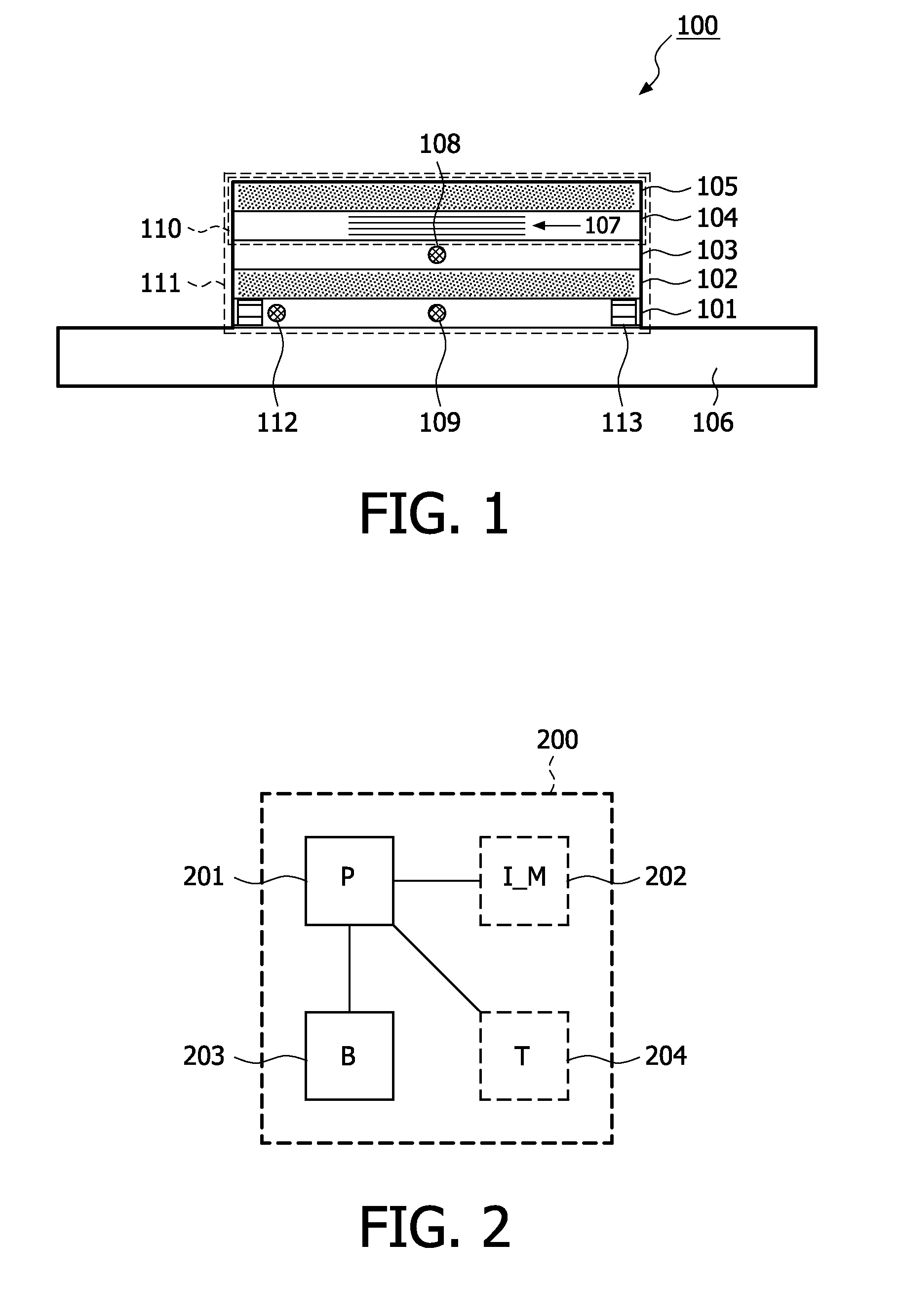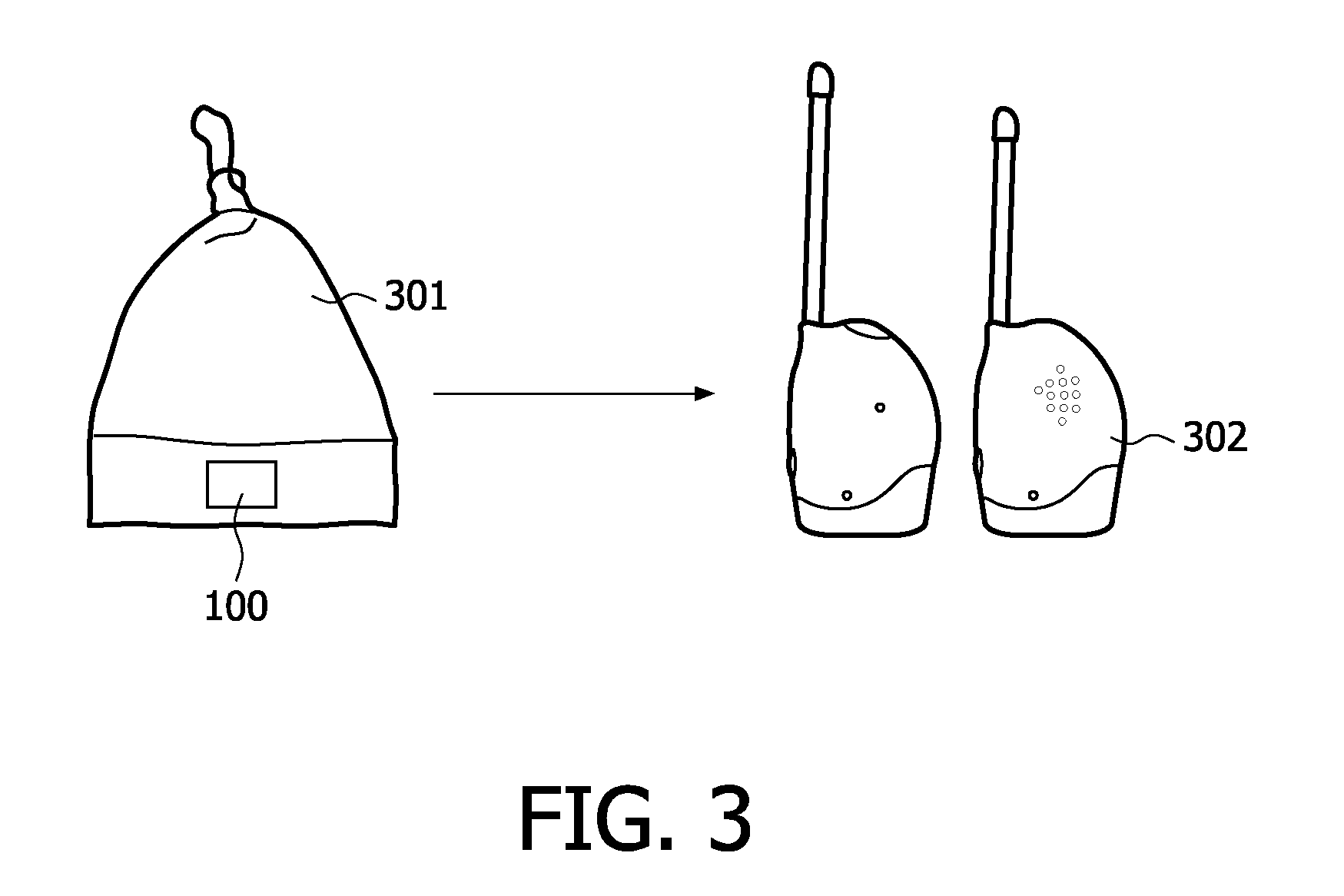Temperature sensor for body temperature measurement
a temperature sensor and body temperature technology, applied in the field of body temperature sensors, can solve the problems of limited use and obtrusiveness of sensors, and achieve the effect of reducing the problem to one dimension and preventing lateral heat loss
- Summary
- Abstract
- Description
- Claims
- Application Information
AI Technical Summary
Benefits of technology
Problems solved by technology
Method used
Image
Examples
example
[0050]During the first days, newborns can have difficulties to keep a constant temperature. Therefore, it is recommended to measure the temperature frequently, and adjust clothing and heating accordingly. Too cold is not good, but overheating is even more dangerous. Present babyphones show the temperature of the room, but not of the baby.
[0051]In this example the temperature sensor 100 is integrated into a baby cap 301 such that when the baby cap is worn by the baby the sensor becomes automatically well positioned on the forehead for the measurement. This allows measuring the temperature of the baby continuously during the first days and displayed via e.g. a wireless link on the babyphone 302. However, integration possibilities are not limited to a baby cap; but could be extended to any fabric (mattress, sleeping bag, pillow, sheet, blanket, etc.) surrounding the baby. In this example, the cap 201 further comprises the system shown in FIG. 2, namely a battery (B) 203, a microcontrol...
PUM
 Login to View More
Login to View More Abstract
Description
Claims
Application Information
 Login to View More
Login to View More - R&D
- Intellectual Property
- Life Sciences
- Materials
- Tech Scout
- Unparalleled Data Quality
- Higher Quality Content
- 60% Fewer Hallucinations
Browse by: Latest US Patents, China's latest patents, Technical Efficacy Thesaurus, Application Domain, Technology Topic, Popular Technical Reports.
© 2025 PatSnap. All rights reserved.Legal|Privacy policy|Modern Slavery Act Transparency Statement|Sitemap|About US| Contact US: help@patsnap.com



